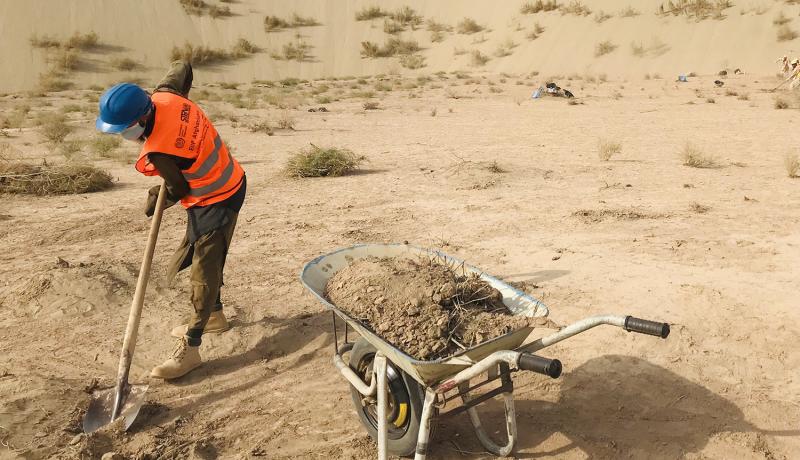

In the remote district of Shortepa, Balkh province, where poverty casts a long shadow, the ILO’s project brought hope. The project, funded by the Special Trust Fund for Afghanistan (STFA) and implemented by the International Labour Organization (ILO), promoted employment and decent work by integrating humanitarian assistance with the development of critical infrastructure.
The project not only enhances local infrastructure but also provides vital income support to the most vulnerable improving their livelihoods.
As the project commenced, news spread through the surrounding villages, sparking interest among many residents desperate for stable employment. Among the hopeful was Abdul Satar, a man living with a disability in his left arm, who is also the sole provider for his family. His burden is compounded by the health conditions of his mother and a wife, both of whom are unable to work and require expensive medical treatment.
Abdul recalls," When I learned about the project's initiative to employ disabled individuals, I was initially skeptical but decided to inquire about the hiring process". Motivated by necessity, he decided to learn more and approached the ILO Community Liaison Officer who provided him with detailed information about the recruitment process, including selection criteria, contractual details, safety and health provisions, environmental safeguards, and suitable activities for people with disabilities.
He notes, "After meeting with the Liaison Officer and learning about the various aspects, I felt a sense of hope as I live in an area where job opportunities, especially for disabled individuals, are scarce. He continues, "Following the opportunity provided to work on the project as an unskilled laborer, I have been able to support my family, take my wife to the doctor, provide for my children, and purchase necessary medicine for my mother. Despite my disability, my working on this project has provided a golden opportunity for me and livelihood for the family”, says Abdul.
For Abdul Satar, the project has been a lifeline, significantly enhancing his family's quality of life. Beyond providing employment to individuals like Abdul, the project has contributed to the broader community by improving road infrastructure, which benefits everyone.
Expressing his gratitude, Abdul says, "From the bottom of my heart, I am thankful to the the project for providing decent jobs to disabled people and acknowledge the positive impact that it has had on disabled individuals like myself and the broader community. I do sincerely hope that the project will continue in the area, addressing not only the provision of essential infrastructure, but also the future livelihoods for a better future."